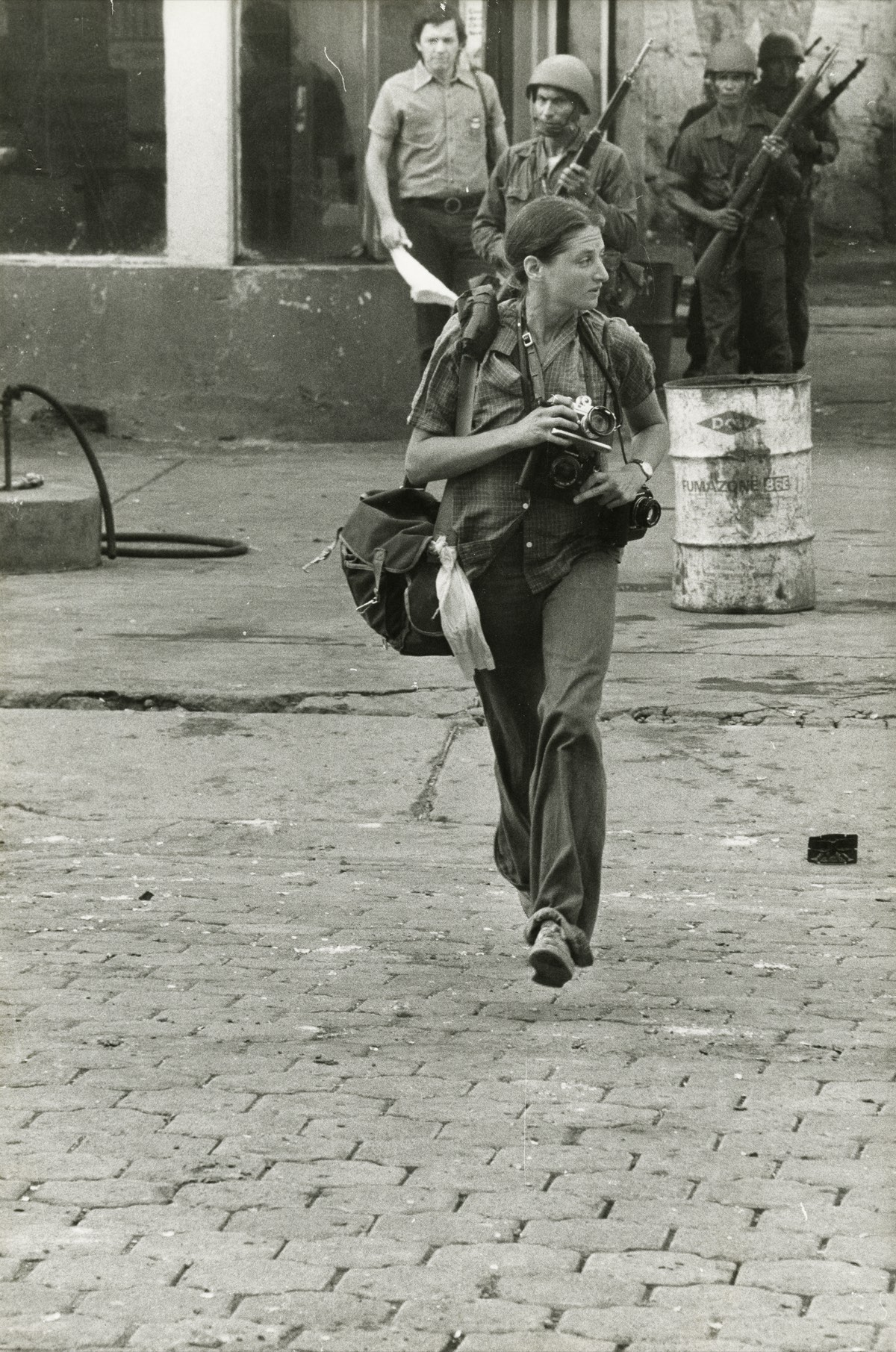
Susan Meiselas Photography: The Story Behind 44 Irving Street
admin
- 0
Susan Meiselas photography is a profound exploration of human connection and representation, spotlighted beautifully through her iconic work in “44 Irving Street, Cambridge, MA.” This early series, captured while Meiselas was a graduate student at Harvard University, showcases her keen observational skills and the power of documentary photography. Through her lens, she created intimate portraits of her boarding house neighbors, inviting viewers to engage with the stories behind each image. The significance of her work is further amplified by its display at the prestigious Harvard Art Museums, where it resonates with themes of personal identity and societal reflection. As she reflects on these photographs, Meiselas emphasizes the vital role of representation in shaping perceptions of self and community.
The photography of Susan Meiselas serves as an essential narrative medium that bridges gaps between individuals through shared experiences and perspectives. Known for her gripping documentary work, she captures moments that transcend mere images, allowing audiences to delve into the lives of her subjects. The series titled “44 Irving Street, Cambridge, MA” is a testament to her unique approach, merging sociological insight with artistic expression. As viewers engage with her photographs, they are invited to witness the complexities of human stories, underscoring the intricate interplay between the photographer and their subjects. Meiselas’s work emphasizes how visual storytelling can unite people, reflecting the diverse tapestry of human existence.
The Impact of ’44 Irving Street’ on Documentary Photography
Susan Meiselas’s project ’44 Irving Street, Cambridge, MA’ is not just a visual representation of life in a boarding house; it is a landmark contribution to the field of documentary photography. This series allowed Meiselas to merge her educational journey with her burgeoning photographic skills, utilizing the medium to explore personal narratives and connections. By focusing on her neighbors and their living spaces, she imbued the project with an authenticity that speaks to the power of representation in photography. Each captured image serves as a powerful testament to the inherent stories present in everyday life, showcasing how documentary photography can transcend mere documentation to evoke empathy and connection.
Moreover, the way Meiselas engaged with her subjects—asking them to reflect on their identities and feelings after seeing their portraits—creates a dialogue around representation that is often overlooked in photographic practice. Through these interactions, she not only captured their likenesses but also their truths, making this project a profound exploration of human experience. This emphasis on personal connection and the multifaceted nature of identity exemplifies how ’44 Irving Street’ has influenced both Meiselas’s career and the broader landscape of documentary photography.
Susan Meiselas: A Pioneer in Documentary Photography
As a prominent figure in documentary photography, Susan Meiselas has consistently used her lens to explore themes of identity, representation, and social justice. Her early work, including the ’44 Irving Street’ series, laid the groundwork for her later projects, which often intersect with activism. Meiselas became known for capturing moments of vulnerability and resilience, particularly in her documentation of events such as the Nicaraguan insurrection. Her ability to convey deep narratives through photographic projects highlights her role as a pioneer in the field, advocating for the voices of those often marginalized in society.
Meiselas’s contributions to documentary photography extend beyond her captivating images; she actively engages with academic discourse around the ethics of representation. Her collaborative work, including the book ‘Collaboration: A Potential History of Photography,’ challenges conventional notions of authorship and emphasizes the importance of inclusivity in storytelling. By prioritizing the voices of her subjects, she reshapes how we understand and engage with photographic narratives. Ultimately, Susan Meiselas’s approach to documentary photography champions the idea that every photograph tells a story, not just of the subject captured in frame, but of the broader human experience.
Exploring the Power of Representation in Photography
Representation in photography is a theme that resonates deeply within Susan Meiselas’s work. Her ’44 Irving Street’ project exemplifies how personal spaces can reflect larger social realities, allowing audiences to gain insights into the lives of others through visual narrative. Meiselas encourages viewers to contemplate the impact of how people are portrayed, evoking questions about identity, agency, and the responsibility of the photographer. This engagement with representation underscores the significance of having diverse voices within the field of documentary photography, as it ultimately enriches the stories being told and paves the way for more inclusive narratives.
Furthermore, the relationship between the photographer and the subject is crucial in understanding the power dynamics inherent in representation. Meiselas’s approach encourages a participatory process where her subjects are not just passive subjects of a photograph but active collaborators in the storytelling process. By providing her neighbors with the opportunity to reflect on their feelings about their portraits, she highlights the complexities involved in the representation of identity and experience. This dialogue is essential for fostering an ethical practice in photography, ensuring that the stories captured are not just visual records, but meaningful representations that honor the subjects and their lived experiences.
The Role of Educational Background in Meiselas’s Work
Susan Meiselas’s educational background at the Harvard Graduate School of Education played a pivotal role in shaping her approach to photography. Initially focused on obtaining a degree, her chance encounter with a sociology-inflected photography course sparked a passion that would redefine her career. This intersection of education and art propelled her to explore the dynamic conversations that can arise from capturing authentic moments in people’s lives. Beauty lies not solely in aesthetics but in the stories that unfold within each frame, making education an essential underpinning in her documentary endeavors.
Her commitment to education extends beyond her formal studies to her teaching practices in the South Bronx, where she integrated photography as a tool for storytelling among elementary students. By using pinhole cameras, Meiselas emphasized the narrative aspect of photography, inspiring her students to view the world through a lens of curiosity and connection. This approach reiterates her belief that photography can foster dialogue and understanding, which makes her educational background vital to her identity as a documentary photographer. It is this blend of art and advocacy that positions Meiselas as a key figure in contemporary photography, influencing future generations to recognize the power of visual storytelling.
Narratives of Everyday Life: The Essence of Documentary Photography
At its core, documentary photography seeks to capture the essence of everyday life, and Susan Meiselas’s work powerfully illustrates this principle. Her ’44 Irving Street’ series is an exploration of the ordinary yet deeply intimate moments experienced by her neighbors, showcasing the diverse stories that reside within a single building. Through her lens, mundane spaces transform into reflections of personal identity, highlighting how the seemingly commonplace can reveal significant narratives. This focus on daily existence emphasizes the strength of documentary photography in presenting a rich tapestry of human experiences.
Through her work, Meiselas invites viewers to engage with life’s narratives, presenting photography not just as an art form but as a medium of communication. Each photograph serves as a snapshot of life, a moment preserved in time that speaks volumes about its subjects and their environments. Her exploration of the nuanced interactions between individuals and their spaces aligns with the greater goals of documentary photography, which seeks to uncover and illuminate the hidden stories embedded in our daily interactions. In doing so, Meiselas reaffirms the importance of validating everyday life and giving voice to those often overlooked.
Connecting with Subjects: Building Relationships through Photography
A defining aspect of Susan Meiselas’s approach is her dedication to building genuine relationships with her subjects. This was particularly evident during her ’44 Irving Street’ project, where she took the time to interact with her neighbors, understanding their stories and inviting them into the dialogue about their representation. Rather than simply capturing images, Meiselas aimed to foster connections that would resonate beyond the frame, thereby enhancing the depth of each photograph. This relationship-centered approach reinforces the notion that documentary photography is a collaborative process.
The act of engaging with subjects on a personal level not only enriches Meiselas’s work but also deepens the viewers’ understanding of the images presented. By allowing her neighbors to reflect on their feelings about the photographs, she created a space for dialogue that emphasizes the complexities of identity and representation. This method fosters empathy and a sense of shared humanity, challenging audiences to consider how photographers can ethically represent their subjects. Ultimately, Meiselas’s commitment to connection transforms her photographic practice into a powerful vehicle for storytelling and community engagement.
Intersecting Personal Narratives with Social Context
Susan Meiselas’s ’44 Irving Street’ project intricately weaves together personal narratives with broader social contexts, raising essential questions about identity, community, and representation. Each photograph encapsulates not just an individual story but also reflects the social dynamics within the boarding house during the early 1970s. By documenting the lives of her neighbors, Meiselas captures the essence of human experience during a transformative period, revealing how personal spaces can signify larger societal themes. This intersection of the personal and the social enriches the complexity of documentary photography.
In her reflective practice, Meiselas emphasizes how personal interactions can unveil the broader societal narratives embedded within individual stories. This duality serves as a reminder that photographs do not exist in isolation; rather, they are situated within specific historical and cultural contexts. By exploring how personal experiences relate to systemic issues—such as displacement, loneliness, and the quest for identity—Meiselas urges audiences to consider the implications of representation. This nuanced approach not only elevates documentary photography but also fosters a deeper appreciation for the diverse narratives that shape our understanding of community and belonging.
Exhibiting the Legacy of ’44 Irving Street’ at Harvard Art Museums
The exhibition of Susan Meiselas’s ’44 Irving Street, Cambridge, MA’ at the Harvard Art Museums marks a significant moment in the recognition of documentary photography as an art form. Displaying the series alongside new reflections and QR codes linking to subjects’ letters, the exhibit invites viewers to engage with the photographs in a more profound way. It allows audiences to not only see but to hear the voices of those captured within the frames, creating a multidimensional experience that enhances the power of representation. This approach exemplifies how exhibitions can serve as platforms for dialogue and reflection, encouraging critical engagement with the stories presented.
Moreover, the exhibition not only celebrates Meiselas’s innovative work but also highlights the essential role that the Harvard Art Museums play in promoting contemporary art and photography. By showcasing the ‘Irving Street’ series, the museum fosters discussions about the ethical considerations surrounding representation in photography. This initiative demonstrates the potential of educational institutions to amplify the values of inclusivity and narrative depth, ultimately paving the way for future artists to explore these vital themes within their own projects. Through this exhibition, Meiselas’s legacy continues to inspire and educate, affirming the importance of documentary photography in capturing the complexities of human experience.
Frequently Asked Questions
What is the significance of Susan Meiselas’ photography in documentary photography?
Susan Meiselas’ photography, particularly her work on projects like “44 Irving Street, Cambridge, MA,” holds significant value in documentary photography as it explores personal narratives and the power of representation. Her approach connects subjects and viewers, fostering a deeper understanding of individuals’ stories within their environments.
How did Susan Meiselas’ project ’44 Irving Street, Cambridge, MA’ influence her career?
The ’44 Irving Street, Cambridge, MA’ project marked a turning point in Susan Meiselas’ career, showcasing her ability to use documentary photography as a tool for connection. This series not only highlighted the unique character of her subjects’ spaces but also underscored her interest in the power of representation and characterization through photography.
Where can I view Susan Meiselas’ photography from the ’44 Irving Street, Cambridge, MA’ series?
You can view Susan Meiselas’ photography from the ’44 Irving Street, Cambridge, MA’ series at the Harvard Art Museums, where these documentary photographs are currently on display until April 6. This exhibition emphasizes the importance of representation in photography, illustrating personal stories of her neighbors.
What themes are present in Susan Meiselas’ photography projects?
Susan Meiselas’ photography projects often explore themes of connection and the problematic nature of the power of representation. Her work, including the ’44 Irving Street, Cambridge, MA’ series, reveals the complex relationships between the photographer and subjects, calling attention to how narratives are framed through documentary photography.
How has Susan Meiselas contributed to discussions about the power of representation in photography?
As a seasoned documentary photographer, Susan Meiselas has contributed significantly to discussions on the power of representation through her work and writings. Her collaboration in the book “Collaboration: A Potential History of Photography” emphasizes inclusive practices in photography, shedding light on the dynamics of subject-photographer relationships.
What techniques does Susan Meiselas employ in her documentary photography?
In her documentary photography, Susan Meiselas employs techniques that focus on building connections with her subjects, as seen in her ’44 Irving Street, Cambridge, MA’ project. She captures personal spaces and evokes narratives through careful consideration of composition, lighting, and the emotional context of her subjects.
What impact did the course Susan Meiselas took at Harvard have on her photography career?
The course with a ‘sociological bent’ that Susan Meiselas took while pursuing her degree at Harvard significantly impacted her photography career. It inspired her to explore documentary photography and connected her to her subjects in meaningful ways, ultimately influencing her future projects and her approach to representation in photography.
Why is Susan Meiselas’ work important in the field of documentary photography?
Susan Meiselas’ work is important in the field of documentary photography because it challenges conventional representations and highlights the individual narratives within broader social contexts. Her innovative approach, particularly in projects like ’44 Irving Street, Cambridge, MA,’ emphasizes the power of connection and the ethical considerations involved in representing others.
| Key Point | Details |
|---|---|
| Background | Susan Meiselas initially pursued a master’s degree but turned to photography during a course in 1971. |
| Photographic Series | Her notable series titled ’44 Irving Street, Cambridge, MA’ showcases the lives of her neighbors. |
| Importance of Interaction | Meiselas captured portraits of her neighbors, emphasizing the importance of personal stories and interactions. |
| Responses from Subjects | After presenting photos to her subjects, Meiselas recorded their personal reflections, which enhance the narrative. |
| Thematic Focus | Meiselas’s work explores connection and the power dynamics in representation through photography. |
| Influence on Future Work | Her ‘Irving Street’ project laid the foundation for her future projects centered on narrative and community. |
| Current Exhibition | Photographs from this series are exhibited at the Harvard Art Museums until April 6. |
Summary
Susan Meiselas photography vividly encapsulates the power of personal narrative through her groundbreaking series “44 Irving Street, Cambridge, MA.” The series not only highlights the lives of her neighbors but also reflects her journey into documentary photography, showcasing the deep connections formed through the lens. Meiselas’s work reveals how photography can serve as a bridge between individuals, prompting reflections that are both personal and profound. As her exhibition continues to inspire viewers at the Harvard Art Museums, it stands as a testament to the importance of storytelling in capturing the essence of human experiences.

